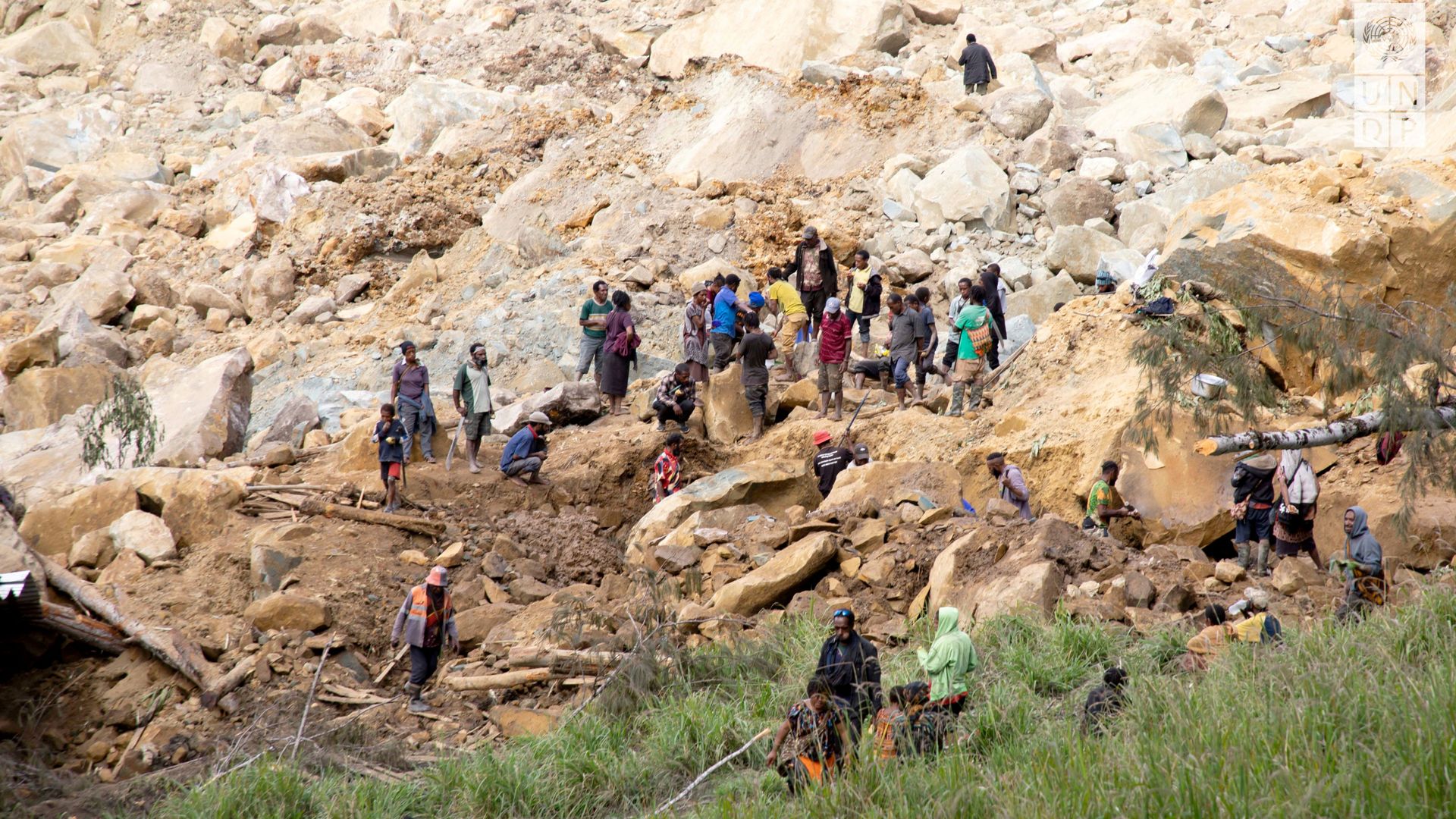Thousands in Papua New Guinea have been ordered to evacuate from the path of a landslide that killed at least 670 people, as fears grow of a second major rockfall.
Officials from the Pacific country said the chance of finding survivors under the rubble in Yambali is slim, after previously saying they believe more than 2,000 people were buried alive.
Enga province disaster committee chairperson Sandis Tsaka explained the area “is very unstable”, hindering relief efforts for those hit by Friday’s landslide.
Military convoys have also had to escort aid teams over unrest among survivors. Meanwhile, the UN’s International Organisation for Migration (IOM) previously estimated 670 villagers died.
On Tuesday afternoon, the UN said six bodies have already been retrieved from the rubble, and an estimated 7,849 people have been displaced.
Please use Chrome browser for a more accessible video player
‘Another landslide can happen’
Serhan Aktoprak, chief of the IOM’s mission in Papua New Guinea, said on Tuesday his agency is hearing “that another landslide can happen and maybe 8,000 people need to be evacuated”.
Papua New Guinea: More than 2,000 people buried alive in landslide – as ‘major destruction’ hampers rescue efforts
Papua New Guinea: Hundreds feared killed after landslide buries remote village
Papua New Guinea PM responds to Biden’s ‘cannibals’ comment
“This is a major concern,” he added. “The movement of the land and the debris is causing a serious risk, and overall, the total number of people that may be affected might be 6,000 or more.
“If this debris mass is not stopped, if it continues moving, it can gain speed and further wipe out other communities and villages further down.”
The landslide occurred after a limestone mountainside sheared away at around 3am (6pm in the UK) on Friday.
Boulders, loose earth and splintered trees were then washed down into Yambali by rainfall trapped between the debris and ground.
Fears of disease outbreak
Footage posted on social media showed locals pulling out people from beneath the rubble and searching through mud, which Mr Aktoprak warned could lead to an outbreak of diseases in the village.
“My biggest fear at the moment is corpses are decaying… water is flowing and this is going to pose serious health risks in relation to contagious diseases,” he said.
Mr Aktoprak separately told Sky News on Tuesday morning that “rocks are continuing to fall” in Papua New Guinea and added: “The land mass debris is moving towards lower areas.
“And to make [the] situation worse, water has been flowing between the soil on which the mass debris had landed for days.
“Now the water levels – as reported by my colleagues – are rising to the upper levels of the debris, making it difficult.”
Read more on Sky News:
Singer behind 17-minute classic dies
PGA Tour golfer took his own life
Rafah is ‘hell on Earth’ – UN agency head
Aid bridge collapses
It comes as a UN official said a bridge, part of the main route for delivering aid to Yambali, collapsed on Tuesday.
Itayi Viriri, regional spokesperson for the IOM, said the collapse has cut off Enga province from the main highway, forcing heavy equipment to take a longer route through the rough terrain.
“The conditions are very, very difficult,” he added. “In some parts, the land is still moving.”
Keep up with all the latest news from the UK and around the world by following Sky News
He added teams are working to prevent “another disaster” and told a UN briefing in Geneva: “We still have water underneath the rubble so that is making the whole area quite uneven. It ensures all response efforts have to be done in a very careful manner.”
Australia has also announced an initial aid package of $2.5m (£1.3m) and sent a disaster response team to Yambali, which was scheduled to arrive on Tuesday.
Be the first to get Breaking News
Install the Sky News app for free
Papua New Guinea is a developing Pacific nation comprising mostly subsistence farmers, with over 800 languages spoken.
Some 85% of its 10 million population live in rural areas.






